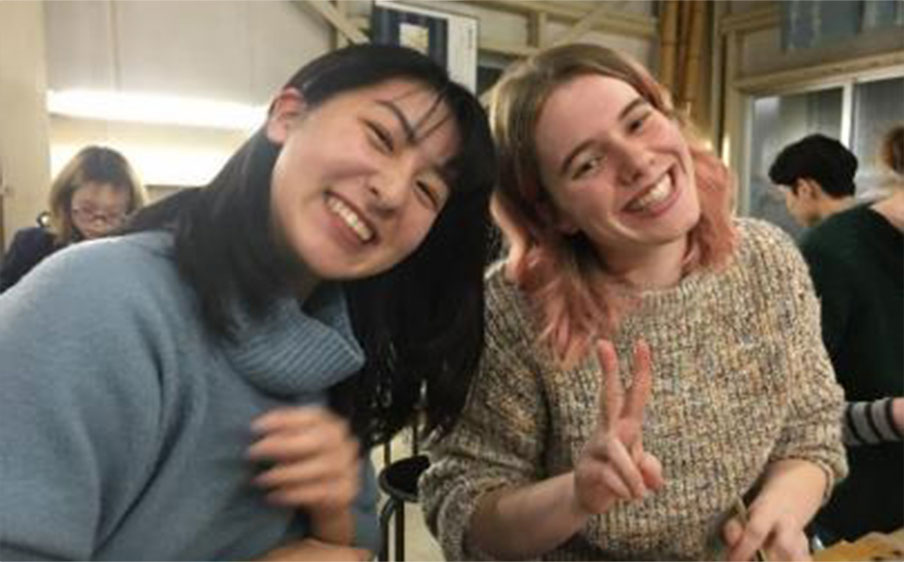Why We Recommend
That Students Study Abroad







- Home
- Why We Recommend That Students Study Abroad
Overcoming the Frustration of Not Being Able to Convey Your Intentions Successfully
Some of you may think that studying abroad has nothing to do with you. Underlying these feelings is often the fear of experiencing frustration in not being able to convey your intentions successfully in a foreign language, or the fear of getting embarrassed. That doesn’t mean that you’re truly not interested in studying abroad. You might simply be telling yourself that study abroad is not for you because you want to avoid such negative feelings.
However, studying abroad is meaningful in many ways. The meaning lies in making a lot of mistakes while using a foreign language, struggling with frustration that your intentions cannot be conveyed, and accepting the uncool you, different from your ideal, without running away. At the end of such hardships, you will be able to experience the great joy and growth that come from finally being able to successfully convey what you want to say to another person.
To cater for a variety of needs, ranging from students who want to try going abroad for the first time at university to those wishing to improve their language proficiency through a long period of study abroad, Ritsumeikan University has various study abroad programs ranging from short term (e.g., 1 week) to long term (e.g., 2 years). Not only are there various possible study periods, but there are also a variety of regions where you can study abroad. For example, there is a program called Global Fieldwork Project, through which students stay in an Asian country like Cambodia, Thailand, Indonesia, Vietnam, or Taiwan for a week, redefining the conventional idea that “studying abroad is something done in English-speaking countries such as the United States, the United Kingdom, and Australia.” Likewise, the options for long-term student exchange of 8-10 months include not only the traditional English-speaking destinations but also a broad range of exchanges in regions such as Europe, Southeast Asia, Central and South America, and Africa, offering highly diverse linguistic and cultural experiences.
In the 2022 academic year, approximately 840 students participated in study abroad programs. It is difficult to dedicate the time required for study abroad once you have graduated and entered the working world. We encourage you to make study abroad part of your plans for university life, with a focus on what you want to learn.
The International Center regularly holds study abroad information sessions and other events. If you would like to take up the challenge of study abroad, please feel free to contact the International Center on any of our campuses!





